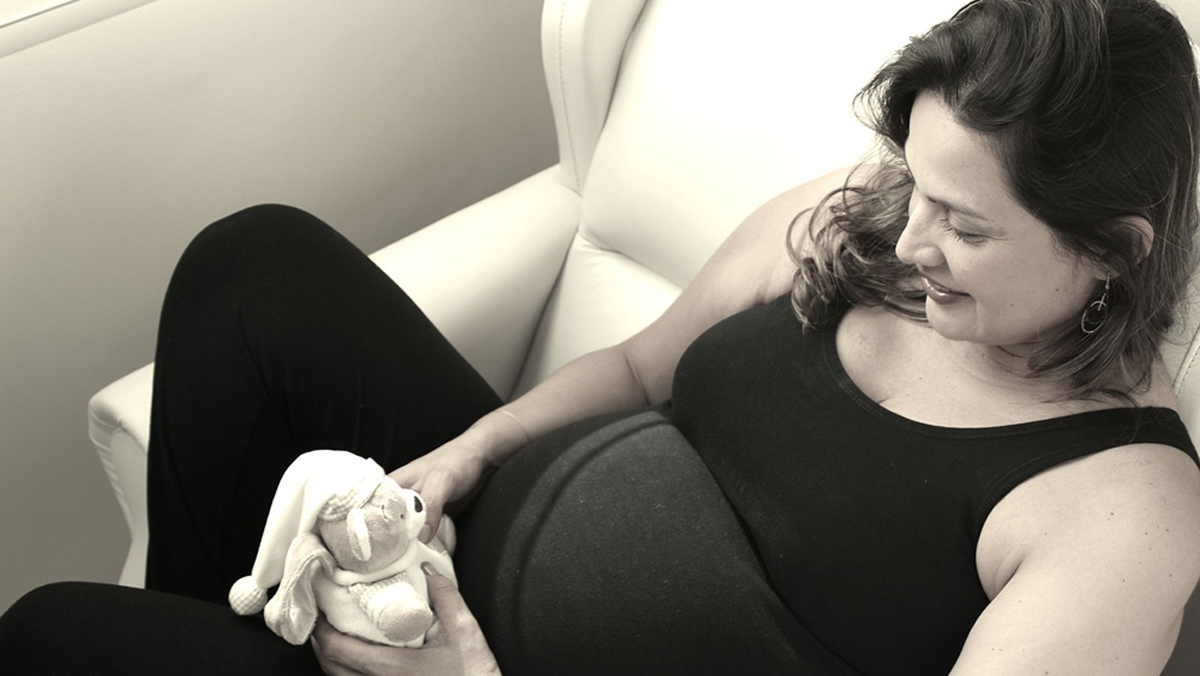THE JOURNEY
JOURNEY OF THE FAMILY
For many people the term Peri-natal Hospice Care conjures up images of a building or hospital unit. But that is a misunderstanding. Perinatal Hospice Care is firstly a philosophy of care and an approach to medicine. It is a holistic model of care, which involves medical support, nursing support, communication, understanding, psychological care, spiritual care, bereavement care and more. So with this in mind what does this care pathway look like on a practical level?

Perinatal Hospice Care is firstly a philosophy of care and an approach to medicine. PERINATAL HOSPICE CARE
DIAGNOSIS
Perinatal Hospice Care always begins at diagnosis. Most often, a baby’s condition is first diagnosed by ultrasound, although sometimes further tests may be required to confirm the diagnosis. The moment a couple is informed that their baby will likely have a very short life is one that they will never forget. Therefore language and communication is so important at this time. Perinatal Hospice Care encourages the use of accurate information, delivered in a sensitive and compassionate way. Parents will testify that the language used by their doctors at this time can have a profound effect on them.
Words like “lethal” and “incompatible with life” can be hurtful and confusing to parents as they don’t reflect the reality that their child is alive in that moment and will likely be born and live for some time. Guidelines on the care of parents in this situation encourage the use of the phrase life limiting condition, which is the most sensitive as well as being the most medically accurate. This is also the phrase that is most consistent with the philosophy of perinatal hospice care. No doctor can say with certainty how long a baby will live for after it’s born and it is better to say that to the parents. Of course, there are documented average life spans of various conditions and this information will be helpful to the parents and should be offered.
Doctors experienced in Perinatal Hospice Care are aware that parents will need time to reflect and digest the information given to them. The most important thing to remember when discussing with parents is to be non-judgmental of their wishes. Parents often feel pressured to pursue a certain course and this would undue influence is inconsistent with the perinatal hospice care philosophy. Parents need to know and that they, and their baby, will receive the best care possible and that nobody is giving up on them because their child is sick. They need to know that every effort will be made to ensure their pregnancy, delivery and post partum period will be made as comfortable and happy as it can be.
Guidelines on the care of parents in this situation encourage the use of the phrase life limiting condition, which is the most sensitive as well as being the most medically accurate. PERINATAL HOSPICE CARE
PREGNANCY
Perinatal Hospice Care embraces every pregnancy as if it was a healthy pregnancy, while at the same time giving each family that extra level of care to ensure they have a happy experience. Examples of this care might include, prioritizing the maternity visits so that these families won’t have to wait to be seen. Seeing them away from those parents expecting healthy children in case this would be too emotional for the family. Taking more regular ultrasounds or heart tracings of the baby so that the parents will have extra memories of their child. Simple conversations that would be the norm in healthy pregnancies should be used in these cases to reassure parents that the staff considers this pregnancy to be just as important as any other. Asking if they know whether they are having a boy or a girl, if they have named their baby and then calling the baby by that name speaks volumes to parents on how the hospital staff views them and their baby.
The prenatal period is also a time to link in with other hospice services. The family may be referred to the perinatal psychologist for psychological care and support. This is also a time to assist other family members, particularly siblings, who may need additional support at this time.
Parents are taught to embrace the pregnancy and to do everything they would do as if they were carrying a healthy child. Pregnancy photos, baby showers, gender reveal parties, journaling the experience of the pregnancy are all encouraged by peri-natal hospice services as a way of allowing parents to have a beautiful experience even under these difficult circumstances.
Families are encouraged to contact voluntary support organizations to meet other parents who have had a similar journey. Sometimes there are questions, which can only be answered by those who have lived this experience, and linking in with support organizations during the pregnancy can alleviate many of the worries and fears the parents my have about the birth.
This is also a period for planning. Plans around the birth, the type of delivery, who the family would like to be present, getting photographers involved, where the parents and baby will be after delivery, whether they would be keen to take the baby home if his or her condition allows it. Planning for all eventualities is a key component of perinatal hospice care and can put parents at ease as they come to close to welcoming their baby.

Simple conversations that would be the norm in healthy pregnancies should be used in these cases to reassure parents that the staff considers this pregnancy to be just as important as any other.PERINATAL HOSPICE CARE
DELIVERY
In most situations a decision will be made during pregnancy on the mode of delivery. Some conditions may require a certain type of delivery, such as elective cesarean section, and this is something that will be planned in advance in peri-natal hospice care.
The post delivery procedure will be planned out in advance depending on what the staff expect. This may include having the neonatologist in the delivery suite with family members, photographer and chaplain if desired. It may involve having a space in NICU available in case of a possible transfer.
One of the core principles of perinatal hospice care is to allow for skin-to-skin contact between mother and baby immediately after birth. Perinatal staff will testify that skin-to-skin contact can have beneficial therapeutic effect on the baby’s comfort after delivery and can also have a profound effect on the mothers bond with her new baby.
Most hospitals will recognize that this is a delicate situation and will try and guarantee privacy for the family by having a private room available for mother and baby post delivery. A good hospice service will also have a family room for other family members to stay over in the hospital to allow them to have as much time as possible with their new addition.
One of the core principles of perinatal hospice care is to allow for skin-to-skin contact between mother and baby immediately after birth.PERINATAL HOSPICE CARE
POST NATAL PERIOD
The time between birth and bereavement for a child born with a life limiting condition can really be filled with the most joy and happiness. Although this time may be short, peri-natal hospice care allows a family to have a rewarding, fulfilled and ever-lasting experience. Ultimately it allows parents to be parents.
Peri-natal hospice care recognizes the need to have a family hold their new baby in their arms for as long as is possible. It focuses on the comfort of the child and follows it’s natural life whether that be seven minutes, seven hours, seven days or seven weeks. The primary goal is the comfort of the baby. Most often these babies do not need much more than warmth and soothing. Other times, depending on their condition and age at delivery, they may need some oxygen delivered through nose or mouth to allow them to breathe comfortably. These babies rarely need medication to relieve any pain or discomfort but if they do, neonatal palliative medicine is equipped to do this.
Memory making becomes an important activity in the post-natal period. Professional photographers such as the charity Now I Lay Me Down to Sleep or often on hand to offer the gift of remembrance photography to these families by capturing these precious moments. Other such activities such as hand and foot prints or 3D moulds of hands or feet can be done to give parents a tangible reminder of the life of their child. Parents will often say that these minutes or hours of making memories with their child are the most important of all.
For babies who live long enough to experience hunger, feeding can be a valued time spent between mother (or father) and the new baby. Being given the opportunity to feed and nurture your child is such a rewarding experience for parents and perinatal hospice care designs innovative and unique ways to allow this to happen, even for babies with profound physical malformations.
Depending on the baby’s condition, some live long enough to be able to leave the hospital and be at home with their families. But that’s not to say the care stops there, peri-natal hospice care, through home hospice teams, extends into the family home and allows the baby to be cared for at home.
Memory making becomes an important activity in the post-natal period.PERINATAL HOSPICE CARE
BEREAVEMENT
It is impossible to say with certainty how long a baby born with a life limiting condition will live for. Some babies continue to stun and surprise doctors by living far longer than medical staff expected. That being said, most of these children will pass shortly after they were born. Sadly, some will pass they day they were born.
Bereavement is a difficult process for any family but even more so when you bereave the loss of an infant. Perinatal hospice care recognizes this and prepares the family for this time.
Parents are sometimes fearful of what will happen around the time of the passing of their baby. Most often, these babies will pass away comfortably, as if sleeping, usually in the arms of a family member. A goal of peri-natal hospice care is to always have the baby held as much as possible, even by staff, so that no child will ever die alone. Staff will testify that often the parents find it hard to know if the baby has passed or not as it is almost like they drift off in a sleep. They will then call the staff to check the baby and confirm.
Like when any patient passes away in hospital, staff are always ready to offer psychological, emotional, spiritual and practical support to the family who are suffering from their loss.
Although this is a sad and heartbreaking time for families, peri-natal hospice services can ease that pain. Parents of children who have passed away shortly after being born will testify that even though the loss was hard, they would never take back the time spent with their baby and the journey they embarked on from diagnosis to death. Because although perinatal hospice care can be perceived as end of life care, really the focus is on life.
Because although perinatal hospice care can be perceived as end of life care, really the focus is on life. PERINATAL HOSPICE CARE


Journey
Perinatal Hospice Care is firstly a philosophy of care and an approach to medicine. READ MORE

Perinatal Care Team
Perinatal Hospice Care is not something that is delivered by one person or even one specialty. READ MORE

Support Organisations
This is where you can get help and support if you receive a diagnois for your baby READ MORE

Philosophy of Perinatal Care
Perinatal Hospice Care is a type of medical care, designed to care for those families who are given such heartbreaking news. READ MORE
Share this Post
